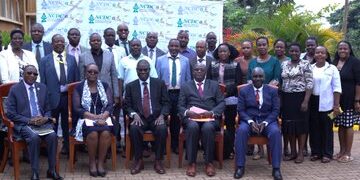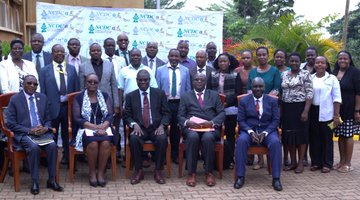Kyambogo — The Director of the National Curriculum Development Centre (NCDC), Dr. Grace K. Baguma, has praised the progress of Uganda’s competency-based curriculum, highlighting its transformative impact on learners.
Speaking during the launch of the 2nd International Conference on Curriculum Development held at NCDC headquarters in Kyambogo under the theme “Innovative Curriculum Approaches for Sustainable Education in a Globalised World,” Dr. Baguma said Uganda is already witnessing the fruits of its curriculum reforms.
“We are beginning to see that in our lower secondary curriculum. Several parents have been telling us, ‘We are seeing a different child, slightly different from the one we had two or three years ago,’” she said. “It means the impact is beginning to be felt despite the challenges and the circumstances in which we rolled out this curriculum.”
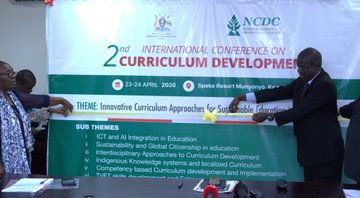
The competency-based curriculum (CBC), first introduced at the lower secondary level, emphasises skills development, values, and real-world problem-solving over rote memorisation. Dr. Baguma said the new approach aligns with Sustainable Development Goal 4, which calls for inclusive and quality education for all.
“Our learners need to be innovative thinkers, effective communicators, and collaborative problem-solvers,” she explained. “We must move beyond traditional knowledge-based approaches and shift towards education that focuses on what one can do and how they live it.”
She emphasised that the CBC nurtures all aspects of the learner—cognitive, affective, and psychomotor—and is helping to shape globally competitive and values-driven individuals.
“Curriculum is not merely a list of subjects. It is a vision of our nation. It shapes the competencies, the values, and the attitudes of our learners,” she noted. “It is what makes us who we are.”
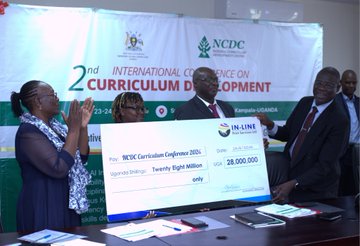
Dr. Baguma reported that NCDC has been aligning the upper secondary (A-Level) and vocational curricula to the same competency-based framework to ensure a seamless transition for learners, with universities also beginning to adapt accordingly.
“Universities are trying to align with the curriculum that we’ve developed. That means we shall soon see the kind of graduates we’ve been yearning for,” she said.
She also detailed efforts at foundational education levels, noting that new curriculum materials are being developed for early childhood education, as well as for talent development and co-curricular learning.
“We are looking at getting a whole person,” she said. “If we are going to nurture talents, we need materials, guidelines, and resource books to ensure our people can grow their capabilities to another level.”
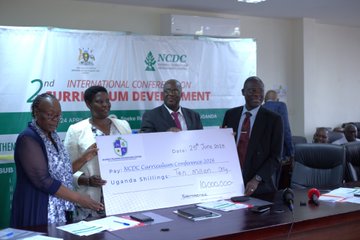
The director also highlighted the expanded mandate of the NCDC under the 2021 amended Act, which empowers the centre to vet and approve both local and international curricula for Ugandan schools, ensuring alignment with national values and standards.
The 2nd International Conference, scheduled for later this year, will serve as a platform for stakeholders to explore bold new directions in curriculum design and share solutions to real-world challenges in education. The first edition of the conference in 2023 led to the creation of the NCDC Journal on Curriculum Development, Evaluation, and Education, now home to peer-reviewed academic work by local researchers.
Dr. Baguma urged continued stakeholder engagement and financial support for the conference, stressing its critical role in shaping the future of education in Uganda. “Let us work together for the good of this country—to bring back the glory where people are proud to have studied in Uganda,” she said.
